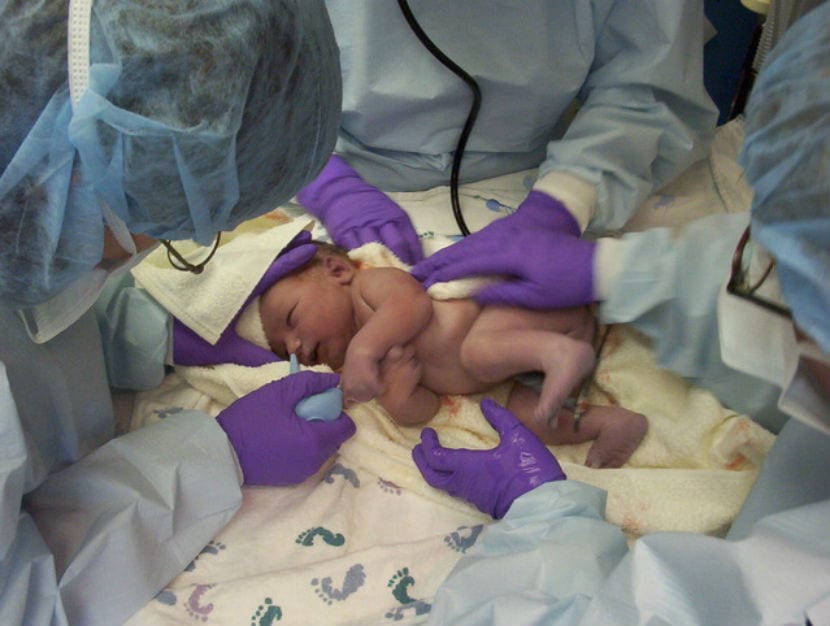
Defining obstetric violence is not easy. Sometimes we refer only to the hospital setting and specifically at the time of delivery. But Is there no obstetric violence during pregnancy?
I have to say that there are fewer and fewer cases, but it should be clear to identify them.
Because of obstetric violence
The problem is, in my opinion, that the woman in the process of pregnancy and childbirth has been considered as someone incapable of taking charge of making decisions for herself. On the other hand, during pregnancy it is not only necessary to look after the woman's health, there is a second person to look after; the baby.
Unfortunately in past centuries, women have been considered people who should be tutored, it has taken many years of struggle to advance on the path of equality. Gynecology and obstetrics, being specialties directed only towards women, drag that burden of professional / patient inequality from which other specialties, more aimed at the male sex, have already managed to get rid of.
And having to watch over the baby's health has traditionally been the perfect excuse to continue exercising this superior treatment; health professional-woman.
What is obstetric violence?
When a pregnancy and / or childbirth are considered low risk and the entire process develops normally, the role of health professionals should be to accompany, help and be expectant about possible complications. We shouldn't intervene unless things get complicated.
Obstetric violence is defined as any action that alters the course of the physiological process of childbirth and turns this physiological process into another totally medicalized, without any real need.
That is, not following the recommendations given by the Ministry of Health, Social Services and Equality in its different protocols for the care of normal childbirth.
For example, shave and give an enema to the woman in labor in a systematic way.
Breaking the bag of waters without being indicated or performing episiotomy in a protocol manner.
Or schedule labor inductions earlier than recommended weeks without justification ...

Are we protected by the law?
In Spain there are different laws to protect patients.
The most complete is the law of patient autonomy. Law that makes it clear that it is the patient who, well informed, must decide his treatment. And it is the obligation of the healthcare professional to provide accurate, clear information and in a way that the patient can understand so that they can exercise this right.
On the other hand, in this same law, the figure of the informed consent. What should be required in any technique or treatment to be performed. In general, it must be done verbally, although when the intervention to be carried out may pose a significant risk to the patient, it must be requested in writing.
What happens in the field of Obstetrics?
Although from the 80-90s of the last century people began to talk about changing things, it has been in the current century when they have become aware of the magnitude of the problem.
In Spain, with the Patient Autonomy Law in 2002, a very interesting path was opened for the recognition of the rights of patients in general.
In 2008 the document "Strategy for normal delivery care in the National Health System" was drafted by the Ministry of Health, Social Services and Equality, and in 2010 the "Clinical Practice Guide on Normal Delivery Care". With both, an attempt is made to avoid the abuse of certain techniques and practices, as well as to restore the physiological character that they had lost to childbirth.
The drafting of a birth plan by the Ministry of Health, Social Services and Equality has been a great recognition of the rights of women to decide during childbirth and postpartum. If you want to consult it, click here.
What can I do to prevent it from happening to me
Almost all hospitals, especially in large cities, They offer to carry out a guided tour or informative meetings to learn about both the facilities and their delivery care protocol. Find out and visit several. So you can decide which one best suits your expectations.
Find out about the existence of the hospital's own birth plan. If they do not have their own, you can use the delivery plan of the Ministry of Health.
At the time of delivery, talk to the midwife who will take care of you and accompany you. Explain your wishes and ask them to explain the protocol and the process they are going to follow.
It is not a question of refusing all the interventions that are going to be carried out, simply ask them to explain why and why to perform this technique.
Keep in mind that in a real emergency there may not be time to wait for your decision and the professional has to act promptly ...